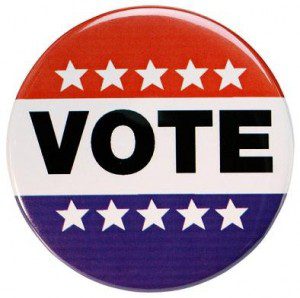In almost any legislative body — from the U.S. Congress to a middle-school student council — if only 10 percent of the members are present, they lack a quorum and cannot have a binding vote.
Robert’s Rules of Order defines a quorum as “protection against totally unrepresentative action in the name of the body by an unduly small number of persons.”
 That’s a just measure reflecting a concern for justice. It’s wrong to pretend that “totally unrepresentative action in the name of the body” is the same thing as the expression of that body’s collective will. Rules requiring a quorum thus seem both logical and necessary. In America’s Congress, a simple majority (usually) constitutes a quorum. The Senate can’t vote unless at least 51 senators are present. That means, for example, that my senators — Bob Casey and Pat Toomey — can’t sneak into the chamber late at night and pass the “Mandatory Annual Pilgrimages to Pennsylvania” bill by a unanimous vote of 2-0.
That’s a just measure reflecting a concern for justice. It’s wrong to pretend that “totally unrepresentative action in the name of the body” is the same thing as the expression of that body’s collective will. Rules requiring a quorum thus seem both logical and necessary. In America’s Congress, a simple majority (usually) constitutes a quorum. The Senate can’t vote unless at least 51 senators are present. That means, for example, that my senators — Bob Casey and Pat Toomey — can’t sneak into the chamber late at night and pass the “Mandatory Annual Pilgrimages to Pennsylvania” bill by a unanimous vote of 2-0.
Quorums just make sense. That’s why legislatures, councils and boards the world over have them.
And it’s why, perhaps, primary elections ought to have them too.
Reindeer herder Kerry Bentivolio is the Republican candidate for the U.S. House of Representatives in former Rep. Thaddeus McCotter’s Michigan district. This is not a situation that pleases most Republicans in Michigan or nationally, but it’s one they’re stuck with.
This isn’t an unusual situation for either party. We’ve seen quite a string of goofy, accidental candidates winding up as the standard-bearers for their parties following victories in poorly promoted primary elections — votes that are binding, but hardly representative. Bentivolio won a primary that involved less than 10 percent of voters in the district.
That’s the same kind of meaningless voter turnout that led to Christine O’Donnell’s surprise primary win over Rep. Mike Castle in Delaware. O’Donnell had a few thousand fired-up supporters who turned out to vote. Castle had tens of thousands of supporters who assumed he would win and thus didn’t bother to vote.
Castle’s loss provided grist for a too-easy lecture on civic responsibility and the importance of voting, yada yada yada. And that’s all true and legitimate. If a majority of voters can’t be bothered to show up, they can’t complain that the election outcome doesn’t represent their views.
The complacency of Delaware’s Republicans worked out well for Democrats in that case. Castle would have been a shoo-in in the general election, but his primary loss resulted in Chris Coons’ victory. I’m happy about that, personally. Coons is a smart, honest and capable man. He’d dutifully agreed to be his party’s sacrificial lamb and now, instead, he’s a U.S. senator.
But there’s still something disturbingly undemocratic about a process that allowed a tiny fraction of the state’s registered Republicans to deny the rest of the state — including the majority of Republicanss — the chance to make the choice they seemed to want. Yes, sure, we must all Learn Our Lesson about the responsibility of voting in primary elections. Tut-tut, tsk-tsk, etc. But this finger-wagging lecturing doesn’t change the fact that this dismally ignored responsibility produced a “totally unrepresentative” result.
I’m focusing here on Republican examples, but again this is a problem that regularly afflicts both parties. I’m highlighting GOP examples here because for me, as a Democrat, it might seem self-serving to complain about unrepresentative-but-binding results from Democratic primaries with a tiny turnout. Such results in Republican primaries actually benefit my side of the aisle, but such short-term benefits don’t outweigh my discomfort with the dubious pretense that elections in which almost no one participates should still be treated as wholly representative and binding.
So here’s my question: Should there be some kind of quorum-like requirement for primary elections? Would it be good or helpful or more democratic to institute some kind of minimum standard for participation below which any election could not be deemed legitimate?
What if we had a rule that said a primary election needed to involve at least 20 percent of a party’s registered voters in order to be binding? Instead of the current system — in which no one votes and a winner is declared from that inadequate sample — the parties would announce that the participation threshold was not met and would schedule a run-off in, say, two weeks.
I realize such run-offs would involve a substantial expense. Elections aren’t cheap. Perhaps some of that expense could be charged to the party whose members’ lack of participation squandered the money spent on the initial balloting — a potential incentive to ensure that missing the “quorum” would be rare.
I’m guessing this is another of those matters where there’s a large and glaring problem I’m overlooking, but since I’m overlooking it, I don’t yet know what that problem is.
So help me out here: What’s wrong with this idea? What are the best reasons there should not be such a quorum or threshold for participation in elections?












